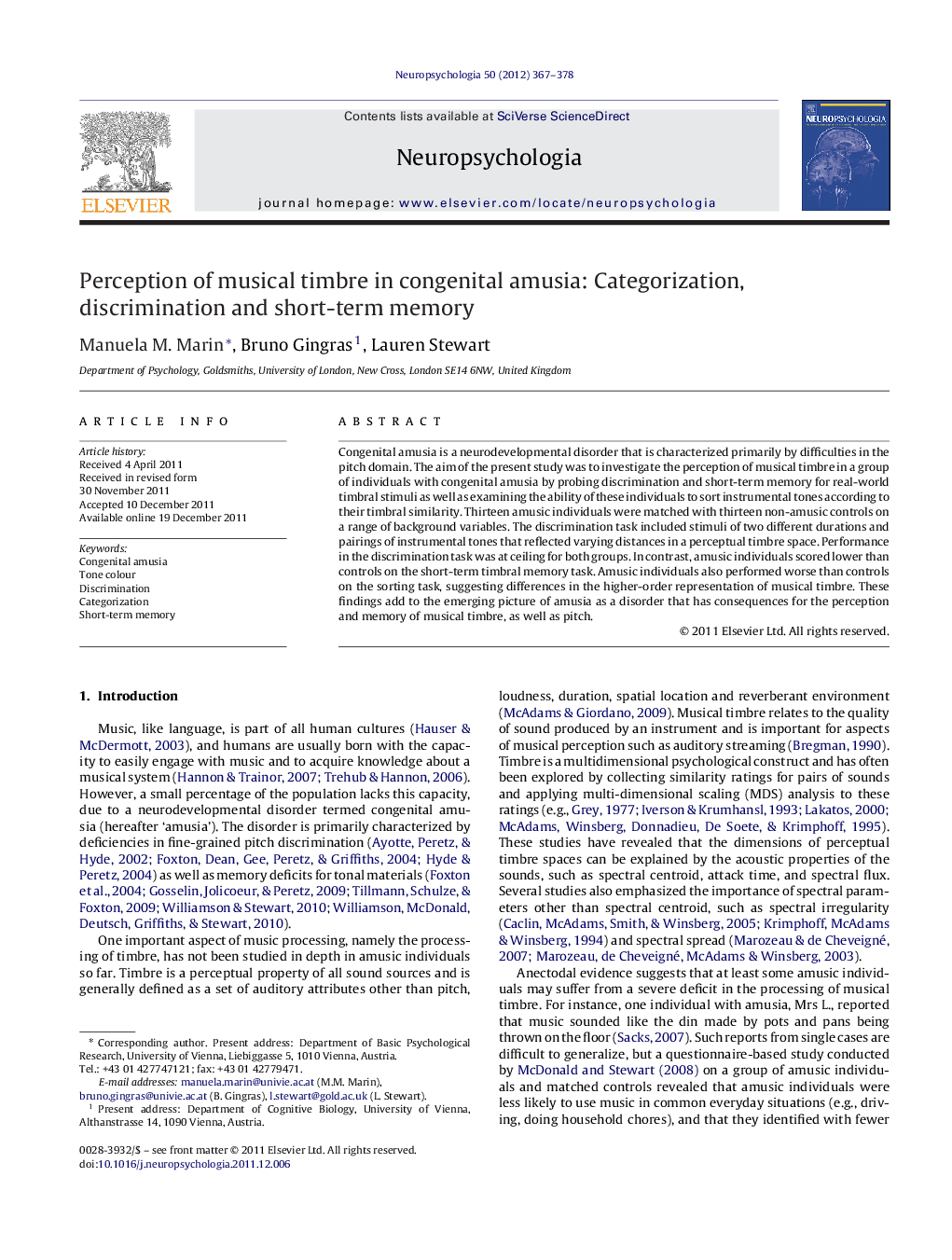| Article ID | Journal | Published Year | Pages | File Type |
|---|---|---|---|---|
| 944873 | Neuropsychologia | 2012 | 12 Pages |
Congenital amusia is a neurodevelopmental disorder that is characterized primarily by difficulties in the pitch domain. The aim of the present study was to investigate the perception of musical timbre in a group of individuals with congenital amusia by probing discrimination and short-term memory for real-world timbral stimuli as well as examining the ability of these individuals to sort instrumental tones according to their timbral similarity. Thirteen amusic individuals were matched with thirteen non-amusic controls on a range of background variables. The discrimination task included stimuli of two different durations and pairings of instrumental tones that reflected varying distances in a perceptual timbre space. Performance in the discrimination task was at ceiling for both groups. In contrast, amusic individuals scored lower than controls on the short-term timbral memory task. Amusic individuals also performed worse than controls on the sorting task, suggesting differences in the higher-order representation of musical timbre. These findings add to the emerging picture of amusia as a disorder that has consequences for the perception and memory of musical timbre, as well as pitch.
► We examine musical timbre perception in congenital amusia (CA). ► Short-term memory for musical timbre was impaired, but not basic discriminability. ► Amusics had difficulty in sorting musical sounds based on their timbral similarity. ► Individuals with CA show deficits in the perception of musical timbre.
